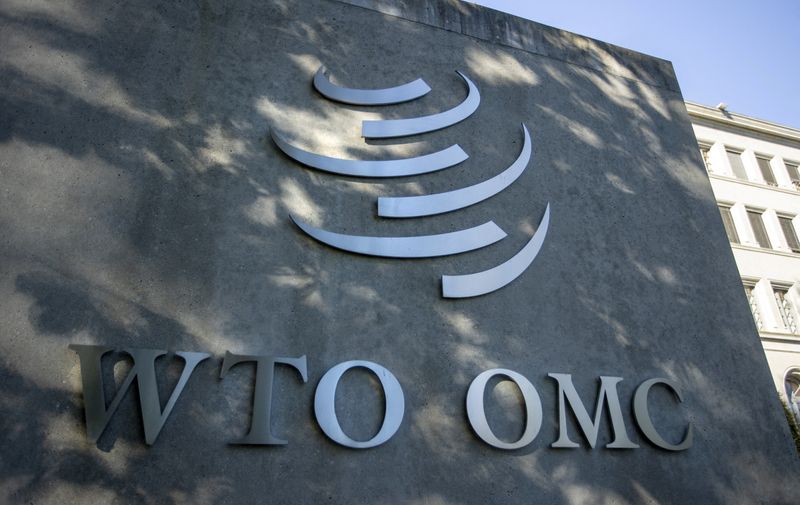By Philip Blenkinsop
(Reuters) - Nothing illustrates the crisis at the World Trade Organization more than the piling up of unresolved disputes and the growing list of what it terms the "trade concerns" of its members.
Since late 2019, after the U.S. blocked the appointment of new judges to the WTO's Appellate Body due to complaints over judicial overreach, 29 cases have been left in limbo, delivering a heavy blow to the dispute settlement system.
Those depositing cases include China, Dominican Republic, India, Indonesia, Morocco, Pakistan, South Korea and the United States.
"No more fraud, no more pretending you're appealing,” former deputy director-general Alan Wolff told a WTO conference last month, urging countries to hold off on fresh appeals from 2024, when WTO members have pledged to address the issue.
The WTO has warned a "polycrisis" of pandemic, war in Ukraine and inflation is sapping faith in globalisation. The result is a growing disregard for global trading rules among WTO members.
Last month it warned that a surge of unilateral measures, if unchecked, would fragment the world economy, stripping 5% of global income.
Import restrictions have eased since 2018, when then U.S. President Donald Trump was slapping tariffs on goods from China and elsewhere, but export curbs have more than offset their decline.
Such curbs averaged 21 per year between 2016 and 2019, but rose to 139 last year.
This has triggered a surge in the number of "concerns" raised at the WTO. These have targeted export restrictions such as for Indian rice and the subsidies the clean tech push has unleashed, such as the U.S. Inflation Reduction Act, with a bias for production in North America, or those for electric cars in China that the EU is investigating.
'TEETERING ON ABYSS OF IRRELEVANCE'
U.S. local content requirements are also set to be raised under the Buy American Act, while the European Union, which still preaches adherence to WTO rules, has subsidies and targets to boost home supply of critical minerals and green production.
Keith Rockwell, senior fellow at the Hinrich Foundation, says the WTO is "teetering on the abyss of irrelevance".
"People are not feeling in any way constrained by their obligations to the WTO when it comes to policy and that was not the case a decade ago," he said, adding that for Washington, the driving force behind the creation of the rules-based trading system, the WTO was now "not on the radar screen".
Countries have taken advantage of exceptions to WTO rules, such as for national security used by the United States to limit metal imports and some Gulf states to restrict trade with Qatar.
Beijing has restricted exports of critical minerals, while Washington has sought to prevent Chinese access to U.S. technology, with national security trumping global trading rules.
The 164 members broadly agree that the WTO, with its 620 staff in an art-deco building on the shores of Lake Geneva, needs reform, although it requires a full consensus to make any change.
For some, reform centres on restoring the Appellate Body, something the United States will not accept. The U.S. believes reform must tackle what it says are discriminatory activities of state-owned enterprises, notably China's, that skew competition.
Reforms could also deal with issues not considered when the WTO was formed, such as climate change, data flows or artificial intelligence.
Reform is set to be a key topic at the WTO's 13th ministerial conference (MC13) in February.
One Geneva-based WTO delegate said it seemed the Biden administration did not believe further trade liberalisation was in U.S. interests, a belief that may be solidified in 2024, a presidential election year.
"And if they don't believe that is in their interest it somewhat blunts the role of the WTO," the delegate said. "The same factors that made MC12 difficult will make MC13 difficult, namely Indian obstructionism and U.S. indifference."

The WTO argues the world needs a renewed drive towards integration, what it calls re-globalisation, to tackle challenges from climate change to poverty reduction, while noting that 75% of goods trade is still based on WTO tariff terms members extend to each other.
"Take that away, and we are left with chaos and what would become a power-based rather than a rules-based system," said Director-General Ngozi Okonjo-Iweala.